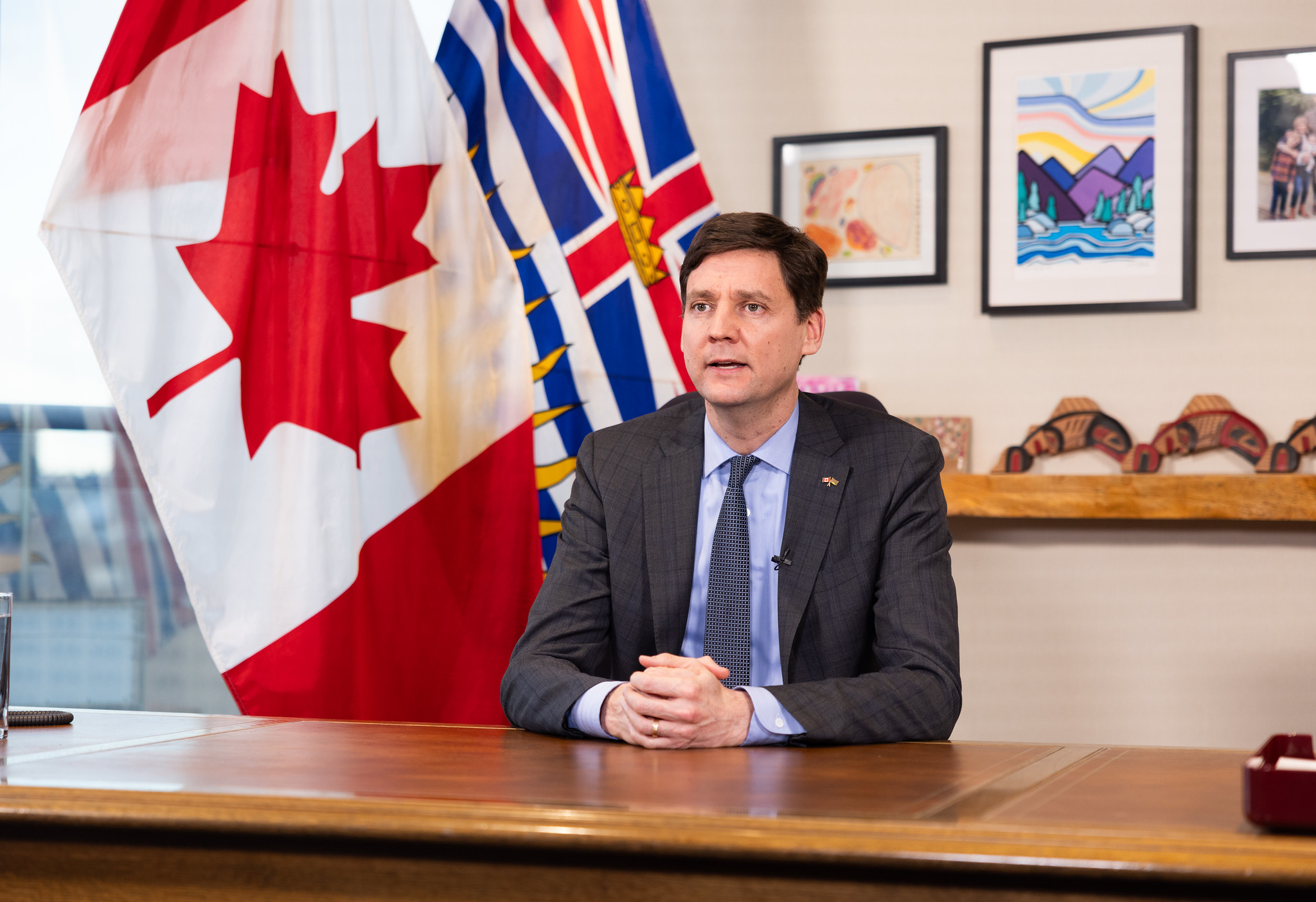B.C., Alberta vow to boost projects in response to tariffs
Both premiers argued that now is the time to start building.

Key Takeaways:
- B.C. is fast-tracking $20 billion in private-sector projects to boost the economy and counteract the negative impacts of U.S. tariffs, with an expected 6,000 new jobs in rural and remote areas.
- The province’s strategy includes retaliatory measures and outreach to U.S. policymakers, economic strengthening through expedited projects, and diversification of trade to reduce reliance on the U.S. market.
- A new trade and economic security task force, along with a cabinet-level “war room,” will oversee a unified government approach to protecting B.C.’s economy, businesses, and workers.
The Whole Story:
B.C. and Alberta have announed plans to speed up large private sector projects as part of its response to large U.S. tariffs.
In Alberta, Premier Danielle smith called on the federal government and other provinces to “immediately commence a national effort to fast track and build oil and gas pipelines to the east and west coasts of Canada, construct multiple LNG terminals on each coast, increase internal refining capacity, unleash the development of critical minerals, lower taxes, reduce red tape, tear down interprovincial trade barriers and re-empower provinces to develop our unique economies without constant federal interference and imposition of anti-resource development laws.”
Premier David Eby announced he is assessing private-sector projects worth $20 billion with the goal of getting them approved as quickly as possible, and issuing their permits faster. These are expected to create 6,000 jobs in remote and rural communities. In addition, the Province has vowed to support and help implement the actions being taken by the federal government.
Premier Eby added that additional measures are under consideration by B.C. and could be introduced in the coming days and weeks.
“We won’t back down or be bullied into becoming another state,” said Premier Eby. “Our province is unified and resolute. We’ll never stop standing up for B.C. and Canada.”
In January 2025, B.C. released its preliminary assessment of 25% tariffs. That analysis showed that B.C. could see a cumulative loss of $69 billion in economic activity between 2025 and 2028, along with the loss of more than 120,000 jobs. Estimates also indicated 25% tariffs on Canadian mineral exports alone will cost American companies over US$11 billion and have a profound effect on the U.S. defense industry, energy production, and manufacturing.
The B.C. government says it has a three-point approach to fight back against the tariffs:
- respond to U.S. tariffs with tough counter-actions and outreach to American decision-makers;
- strengthen B.C.’s economy by expediting projects and supporting industry and workers; and
- diversify trade markets for products so British Columbia is less reliant on U.S. markets and customers.
To support B.C.’s strong tariff response and ensure actions are swift, responsive and co-ordinated, Premier Eby has established a trade and economic security task force to bring together business, labour and Indigenous leadership. The task force is co-chaired by Tamara Vrooman from the Vancouver International Airport, Jonathan Price from Teck, Bridgitte Anderson from the Greater Vancouver Board of Trade, and includes B.C.’s largest business organizations.
A new cabinet committee will act as a day-to-day war room, co-ordinating the whole-of-government approach the Province is taking to protect B.C.’s workers, businesses and economy.
According to the province:
- 54% of BC exports in 2023 were sent to the United States;
- Wood, pulp and paper, metallic mineral and energy products combined make up approximately 67% of total goods exports.
- The top five states for B.C.’s exports were: Washington ($9.8 billion), California ($3.2 billion), Illinois ($2.1 billion), Texas ($1.5 billion), Oregon ($1.3 billion)
